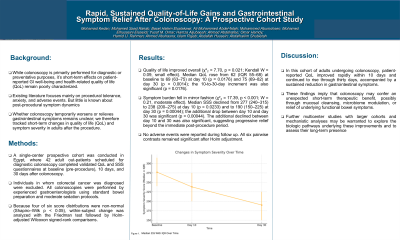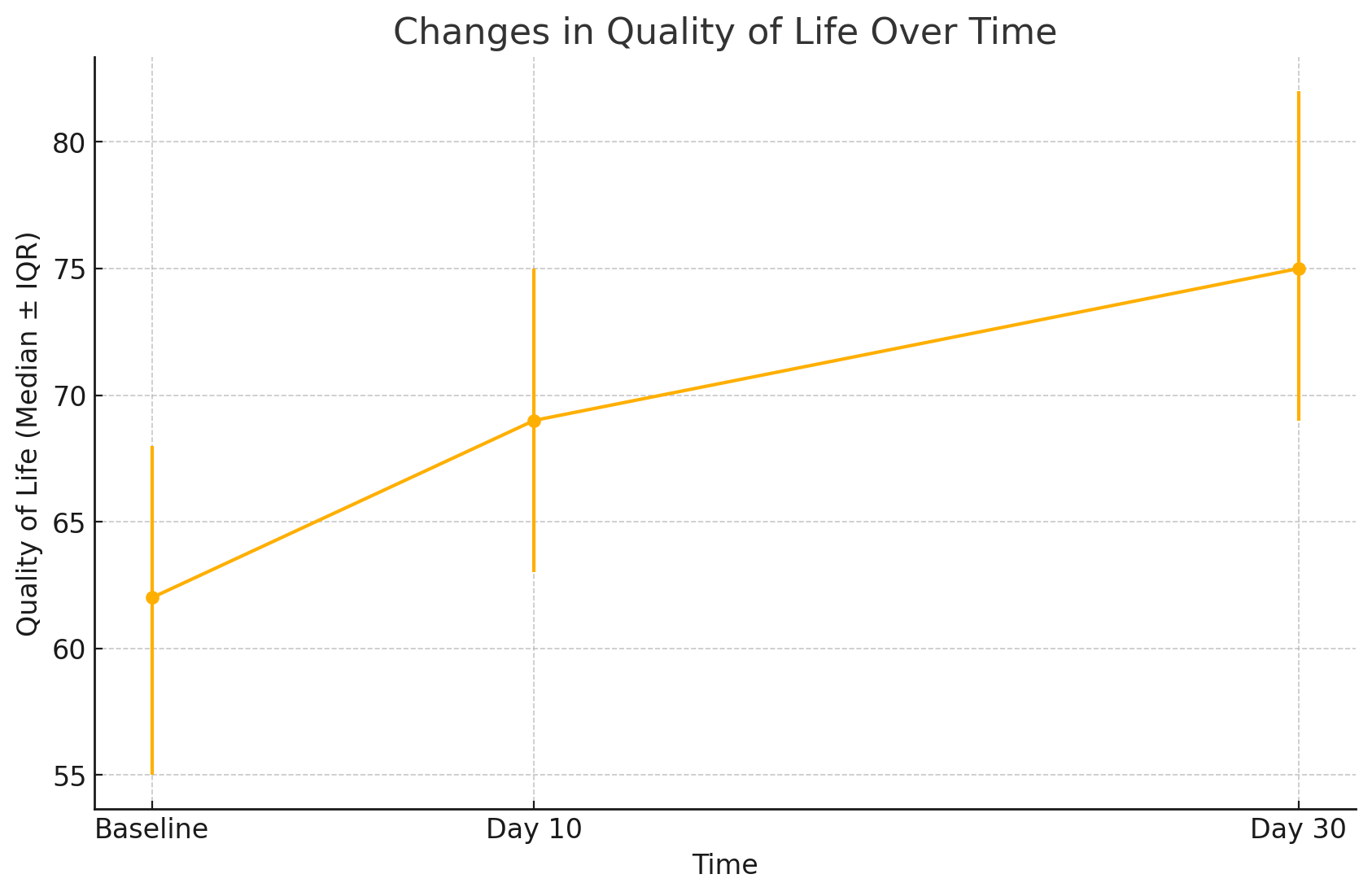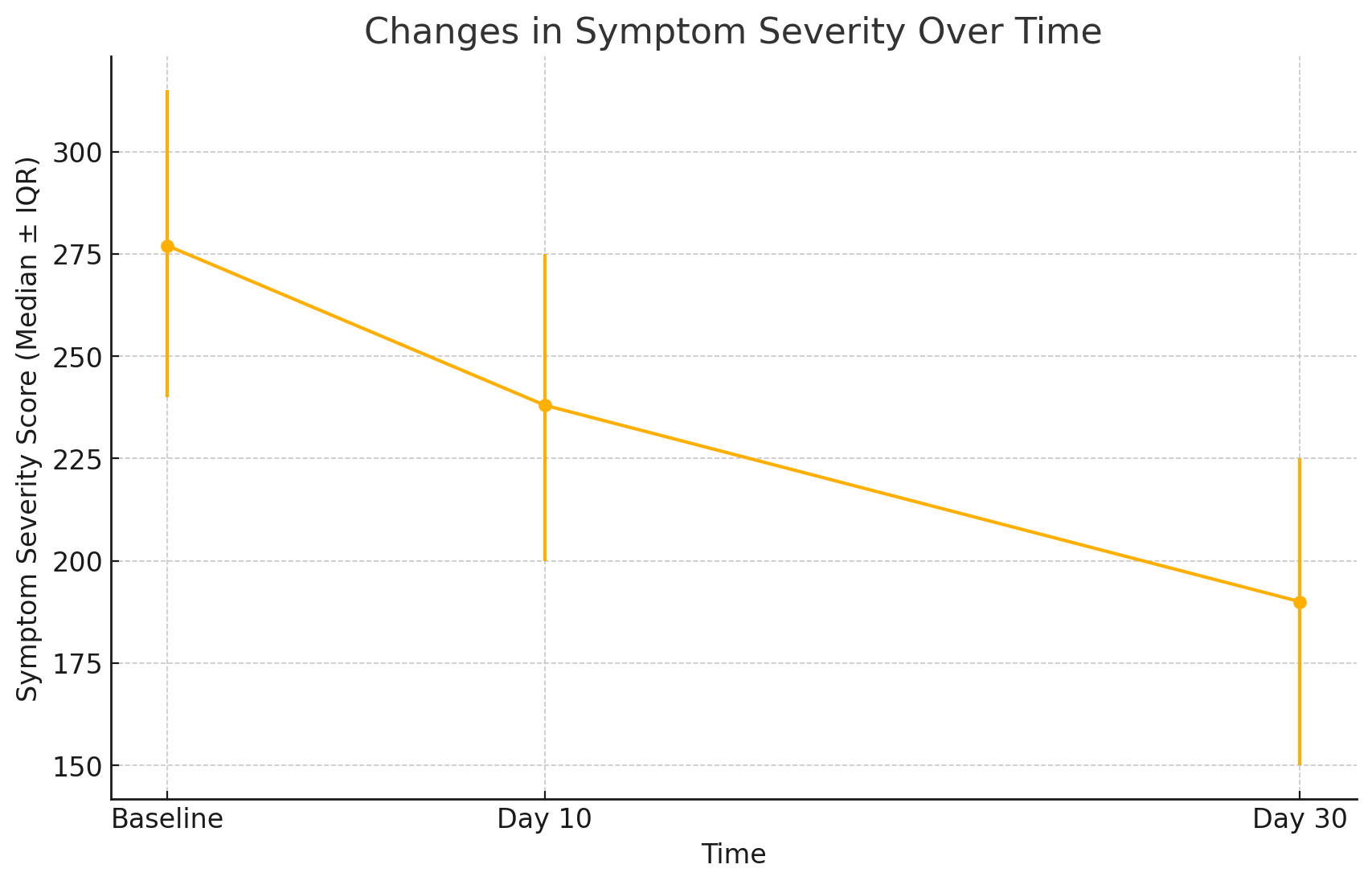Tuesday Poster Session
Category: Colon
P4561 - Rapid, Sustained Quality of Life Gains and Gastrointestinal Symptom Relief After Colonoscopy: A Prospective Cohort Study


Hamid U. Rahman, MD
Advocate Illinois Masonic Medical Center
Chicago, IL
Presenting Author(s)
1Mansoura University, Mansoura, Al Bahr al Ahmar, Egypt; 2Faculty of Medicine, Mansoura University, Mansoura, Egypt, Mansoura, Ad Daqahliyah, Egypt; 3Mansoura University, Mansoura, Al Minya, Egypt; 4Mansoura University, Mansoura, Al Minufiyah, Egypt; 5Mansoura University, Mansoura, Dumyat, Egypt; 6Mansoura University, Mansoura, Al Qahirah, Egypt; 7Mansoura University, Mansoura, Al Qalyubiyah, Egypt; 8Mansoura University, Mansoura, Al Iskandariyah, Egypt; 9Advocate Illinois Masonic Medical Center, Chicago, IL; 10St. Joseph's University Medical Center, Paterson, NJ; 11Virtua Our Lady of Lourdes Hospital, Camden, NJ
Introduction:
Whether colonoscopy temporarily worsens or relieves gastrointestinal symptoms remains unclear; we therefore tracked short-term changes in quality of life (QoL) and symptom severity in adults after the procedure.
Methods:
A single-center prospective cohort was conducted in Egypt, where 42 adult out-patients scheduled for diagnostic colonoscopy completed validated QoL and SSS questionnaires at baseline (pre-procedure), 10 days, and 30 days after colonoscopy; individuals in whom colorectal cancer was diagnosed were excluded. Because four of six score distributions were non-normal (Shapiro–Wilk p < 0.05), within-subject change was analyzed with the Friedman test followed by Holm-adjusted Wilcoxon signed-rank comparisons.
Results:
Quality of life improved overall (χ²₂ = 7.70, p = 0.021; Kendall W = 0.09, small effect). Median QoL rose from 62 (IQR 55–68) at baseline to 69 (63–75) at day 10 (p = 0.0176) and 75 (69–82) at day 30 (p = 0.0014); the 10-to-30-day increment was also significant (p = 0.0176). Symptom burden fell in mirror fashion (χ²₂ = 17.39, p < 0.001; W = 0.21, moderate effect). Median SSS declined from 277 (240–315) to 238 (200–275) at day 10 (p = 0.0233) and to 190 (150–225) at day 30 (p = 0.00044); the additional drop between day 10 and day 30 was significant (p = 0.00044). All six pairwise contrasts remained significant after Holm adjustment.
Discussion:
Among adults undergoing colonoscopy, health-related QoL rises, and symptom burden falls within ten days of the procedure and continues to improve through day 30. These findings suggest colonoscopy confers a rapid clinical benefit whose biological mechanisms and longer-term durability warrant further investigation.


Disclosures:
Mohamad Kedan, MBBCh1, Mohamed Saad Rakab, 2, Basel Hatem Elsalakawi, MBBCh3, Ali Mohammed Abdel-fatah, MBChB4, Mohammed Abumohsen, MBBCh5, Mohamed Elhusseini Elsaeidi, MBBCh6, Yusof M. Omar, MBBCh7, Hamza Aljubaeh, MBBCh6, Ahmed Abdelrafee, MBBCh8, Omar Hamdy, MBBCh8, Hamid U.. Rahman, MD9, Ahmed Abuhasna, DO9, Islam Rajab, MD10, Abdallah Hussein, MD11, Abdalhakim Shubietah, MD9. P4561 - Rapid, Sustained Quality of Life Gains and Gastrointestinal Symptom Relief After Colonoscopy: A Prospective Cohort Study, ACG 2025 Annual Scientific Meeting Abstracts. Phoenix, AZ: American College of Gastroenterology.
